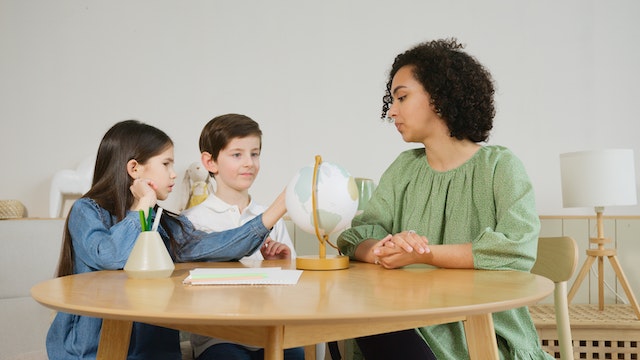Read the detailed description of Quest's Program Details!
Experiential learning has been a cornerstone of the work that I have engaged in with children for over 20 years. In this newsletter I will discuss some ways in which it is possible to teach children values, skills and life lessons and more directly how these methods can be used during the experience of a pandemic.
First, though, I believe it is important to describe what experiential education is. “Experiential education is a teaching philosophy that informs many methodologies in which educators purposefully engage with learners in direct experience and focused reflection in order to increase knowledge, develop skills, clarify values, and develop people’s capacity to contribute to their communities…Experiential education is a hands-on form of learning that begins with a concrete experience. After solving a problem, learners reflect on the process and are able to apply lessons more broadly to their lives.” [1] I have also made the case in previous newsletters that experiential learning can be a key way to support children with attention and learning difficulties since this approach is a great fit to engage with children who often need more repetition, as well as a multisensory experience to build skills. In addition, active learning strategies are potentially powerful, as some research suggest that people only retain 25% of what they see and hear, while retaining 80% of what they experience and practice. [2]
While it is true that some experiences we want and actually work to create such as having a travel experience or building a friendship, At Quest, we actually spend the whole year strategically crafting activities, games and team building initiatives to be able to create a rich experience for our campers that they can learn and go from. Other experiences such as a global pandemic are not desired, but can still have a large impact. Utilizing the principles of experiential learning including reflecting on what occurred in the experience and how problem solving was used can bring a new level of understanding and skill.
Teaching Values–Living through a pandemic creates the opportunity to reflect on your family values. A few areas that could create discussion and reflection include:
-discussing values related to self-care and the use of coping strategies
-discussing values related to how our behavior can impact ourselves and also others
-discussing values related to mindset during struggles, resilience and how to thrive despite circumstances
-discussing values related to connectedness with others
These are just a few examples, there are many other types of values that might be most important to you and your family. A key question may be:
-What are our families key values and how are these actively being represented through the current experience we are having as a family?
Teaching Skills–This has also been a key time in learning new skills. I don’t know about you, but I never dreamed I would learn so much about Zoom, Google Meet and even how to run a whole summer camp virtually. Right now parents and kids are doing so many extra things related in a variety of skills being developed. Some areas to reflect on could be:
What are new skill areas that I or my child have developed in the area of:
-coping skills
-creating structure when one is needed
-online learning
-organizational tasks
-computer/technology skills
-developing healthy behaviors
-what to do when bored
-learning new hobbies
-problem solving shared space
-building in new health routines (exercising, spending time in nature, cooking healthy meals, etc.)
-social cues related to engaging with others through technology versus in-person
Teaching Life Lessons–To me, life lessons fit with both values and skills. This can be focusing on what life lessons you want your family or children to take from the experience. Some potential examples that may fit for you or your family could be:
-We are driven by our values by…
-We are able to deal with or overcome adversity by…
-We are flexible problem solvers who…
-We are a family that connects by…
Overall, there are many potential areas to reflect on and use recent experience in a positive way. Reflecting on or processing the experience can be done a variety of ways from having a discussion as a family, asking reflection questions, having family members draw pictures, act out things like in charades or write poems about these key areas. My hope for you is you can find some ways to highlight things in these three areas for you and your family to get as much positive outcome as possible in this current time.
1] What is Experiential Education? Association for Experiential Education https://www.aee.org/what-is-ee retrieved on November 30, 2020
[2] Brady, 1989 as cited in Luckner, J. L., & Nadler, R. S. (1997). Processing the experience: Strategies to enhance and generalize learning (2nd ed.). United States: Kendall/Hunt Publishing.

